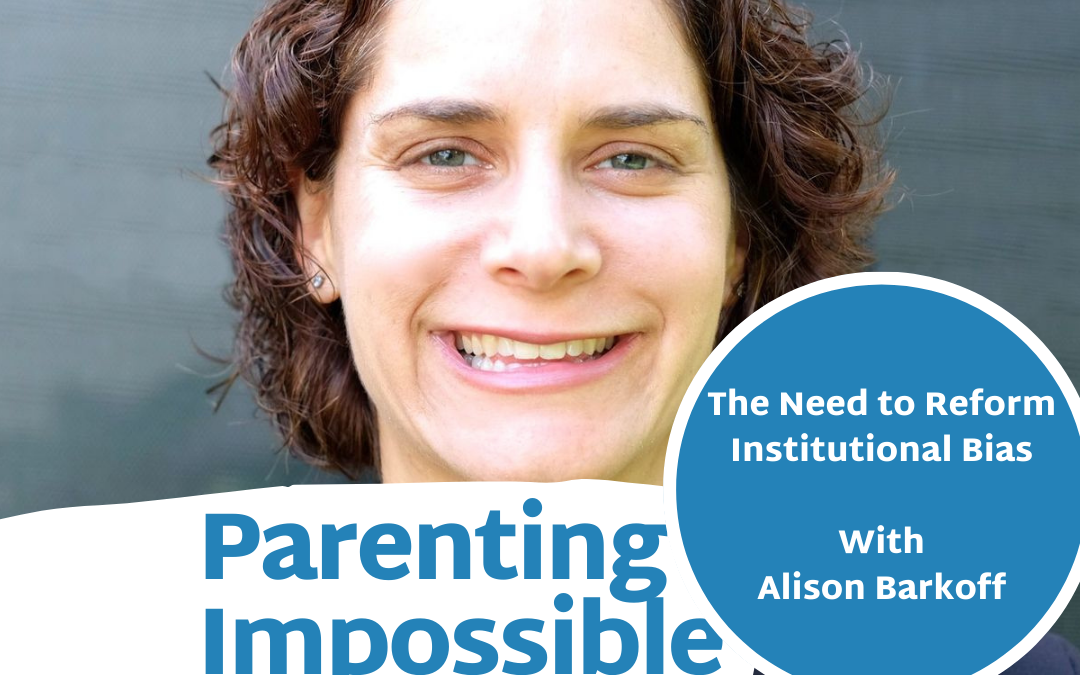The death of Associate Justice of the Supreme Court, Ruth Bader Ginsburg, has brought a new push for disability rights. In this episode of Parenting Impossible, Host Annette Hines talks to Alison Barkoff, Director of Advocacy at the Center for Public Representation in Washington D.C. They discuss the impact of Justice Ginsburg‘s death on the disability community‘s fight for civil rights and why litigation to combat institutional bias is essential for the wellbeing of people with disabilities.
Alison came to this profession based on personal experience and connection to the disability community through her brother Evan who has Down Syndrome. Her family made the courageous decision to care for him themselves rather than sending him to an institution nearly 40 years ago. This choice made Alison realize the lack of support for families like hers.
Justice Ginsburg wrote the groundbreaking decision for the case, Olmstead v. L.C., in 1999 that said the segregation and discrimination of people with disabilities was a violation of title II of the Americans with Disabilities Act. According to Alison, this case is the centerpiece of the disability community’s civil rights movement. It gave people with special needs the civil right to participate and be included in their community for the first time.
Ever since the 1980s, American society has greatly enforced antiquated institutional services. New lawsuits are in progress across the country, fighting for individual rights and care instead of group-enforced institutional living. These cases have expanded the ruling of the Olmstead v. L.C. decision by challenging educational and care homes that are privately funded but run like traditional institutions. This fight is not trying to simply change where people with special needs live but also how they live.
Alison‘s work within policy and as a litigator has allowed her to be a part of the fight in several of these new lawsuits, one ten years ago in Georgia and another recently in Texas. These lawsuits work to show how people with disabilities are far more capable of making their own decisions and having a say in their care than people previously believed.
The push for disability rights is also about reforming healthcare and Medicaid, for Medicaid may provide support for families with children who have special needs. It was initially created for a society based on institutionalized ideals, and private insurance does not typically cover the support or services that these families need. This discrepancy leaves the question to families of whether or not to risk choosing an institutionalized service or take on the burden of care alone for the foreseeable future.
In 2014, the Home and Community Based Services Settings Rule was implemented, and states are still working to make the required changes. While this may be frustrating for families who desperately need home and community services for support, this rule is groundbreaking and will ultimately lead to individualized care across the nation.
Each state has an advocacy and disability rights center. You can find the contact information for the Center for Public Representation in Washington D.C. through their website, and you can connect with them on Facebook and Twitter. You can also contact Alison by emailing her at abarkoff@cpr-us.org.
Annette Hines has been practicing in the areas of Special Needs, Elder Law, and Estate Planning for more than 20 years. Ms. Hines brings personal experience with special needs to her practice and podcasts as the mother of two daughters, one of whom passed away from Mitochondrial disease in November 2013. This deep, personal understanding of special needs fuels her passion for quality special needs planning and drives her dedication to help others within the special needs community.

